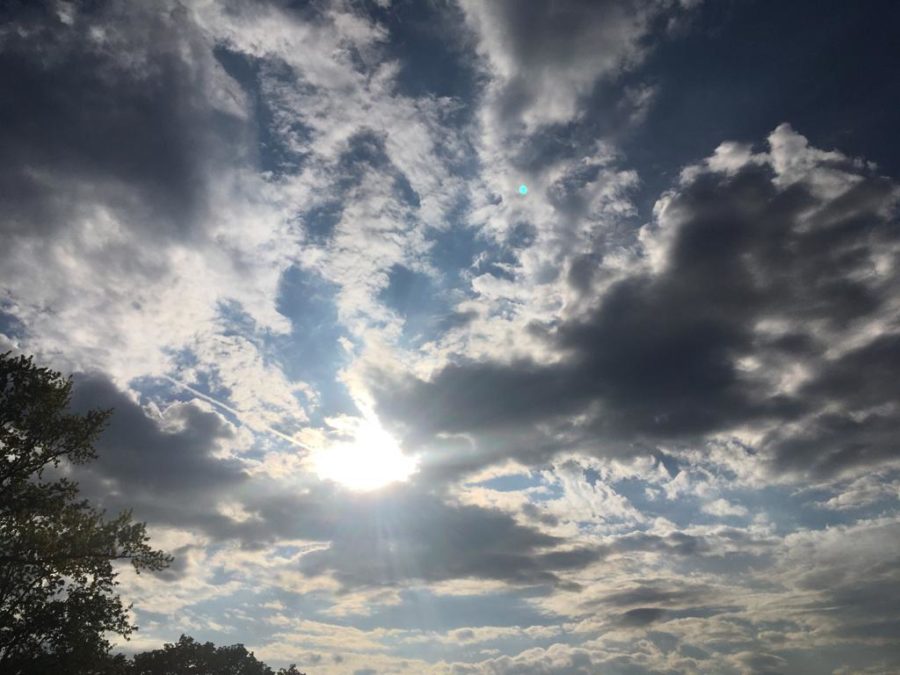Grey and windy in London; wet in Vienna; sunny in Skopje; ‘improbably sunny’ in Dublin; sultry in Lisbon… Online meetings of British Ambassadors often start with friendly chat that sounds a bit like a global weather forecast. After all, talking about the weather is something that British people are famous for. British diplomats are no exception.
There is a good reason why we talk about the weather so much in the UK – it’s because, being a country with a long coast line and a small land mass, our weather is rather changeable and unpredictable. Diplomats take many habits with them when they go abroad – and for British diplomats talking about the weather is one of them. I think it’s rather an nice habit that helps us communicate with all sorts of people on uncontroversial ground. With our own colleagues around the UK’s diplomatic network it’s a nice way of reconnecting with old friends, and of building up a mental picture of the lives of people hundreds or thousands of miles away that are doing a similar job to your own.
But in the UK for the past few years we have even more weather than usual to talk about. Our weather is full of even more surprises, constant new records for the hottest temperature, more frequent flooding and so on.
Our climate is changing, not just in the UK but around the world. Increasingly frequent catastrophic weather ‘events’. Melting polar ice caps. Rising sea levels. And those same rising temperatures that have an impact upon people, upon landscapes, and upon wildlife.
This November in Glasgow, and working with our Italian colleagues, the UK was due to host the next major UN international climate change conference, called COP26.
Sadly that now won’t be possible because of the coronavirus pandemic. (In fact, the conference venue has been converted into a temporary COVID 19 hospital, named after Louisa Jordan, a Scottish nurse who died in Serbia in 1915 caring for typhus patients.) So the COP26 Glasgow conference must wait until November 2021.
But climate change will not wait. The emergency facing our planet will not go away or slow down because we have other challenges to deal with. So the UK and Italy will be working throughout the year to make sure that whatever challenges we face from COVID19, climate change and environmental protection remain high on the international agenda and practical action to build a greener future and protect our natural world continues.
With COP 26 to look forward to, diplomats – and not just British ones – will have more reason than ever to talk about the weather over the coming year. In the mean time we hope that international leaders will be setting their own ambitious national targets for reducing carbon emissions to zero. The UK target is to achieve this by 2050 – 30 year’s time.
Targets like these mean we need to speed up what Prime Minister Boris Johnson calls the green industrial revolution, phasing out the most polluting power production, developing more environmentally friendly transport, and investing in greener technologies. Some international diplomatic conferences deal with complex issues that may seem remote from ordinary, everyday lives. But these are all things that affect us all directly or that will affect everyone of our children and grandchildren.
So COP26 will focus on:
- protecting nature and biodiversity, repairing damaged natural habitats and ecosystems;
- speeding up transition to cleaner energy;
- Speeding up transition to cleaner transport – and cleaner air
- investing in greener technology and jobs; and
- Helping countries reduce their vulnerability to climate change
In short greening economies, greening lives – and re-greening our world.
Ten years ago as British diplomats we often talked and wrote about the UK’s ambitious targets for greening our own economy. I did this with genuine enthusiasm and commitment, but also with a whispered question in my mind as to whether we could achieve everything we were promising to do. That whisper of doubt has long gone. What might have seemed like science fiction then is today’s reality or tomorrow’s certainty. We did invest in innovation, greener technologies, and greener energy production. Green jobs were created and green energy costs did come down. For example the cost of offshore wind power is 70% less than it was eight years ago. As a result of our investment in a greener future we have massively reduced our dependence upon fossil fuel. This year the UK went for an unbroken 67 days without using coal to generate power. That’s a long way from the coal mining valleys of my mother’s own childhood – and a long way from the coal fired stove I remember her cooking on or the coal fire that heated our hot water.
There is still much, much further to go, and much more to do to reduce our impact upon the environment and build that greener future for our country and our world. Like all global challenges, solutions need to be global. So the UK has invested over £1 billion in clean power projects in the developing world over the past five years.
But of course it’s not all about energy and economics. It’s not even just about weather. Greener economies have cleaner air. Cleaner air means better health and better quality of life for everyone. Even intense international cooperation cannot stop climate change or reverse the damage to biodiversity in a day.
But even as individuals we can all help to protect our environment. We can reduce the amount of waste our household produces. We recycle more. We can choose greener or more energy efficient options when shopping. We can walk or cycle when making short journeys. And we can help to keep our environment cleaner and healthier by not dropping litter.
This week the British Embassy in Belgrade will be making a small contribution to improving our local environment when we spend a morning helping clean up a stretch of riverbank along the River Sava.
In future podcasts I’ll talk about some of the other things we are doing to help protect, and reduce our impact upon, the environment. I will be talking as well to other people who working to raise environmental awareness and to protect nature. But now I am off to find my wellington boots and to get ready for our riverbank clean up.
UK Ambassador to Serbia













